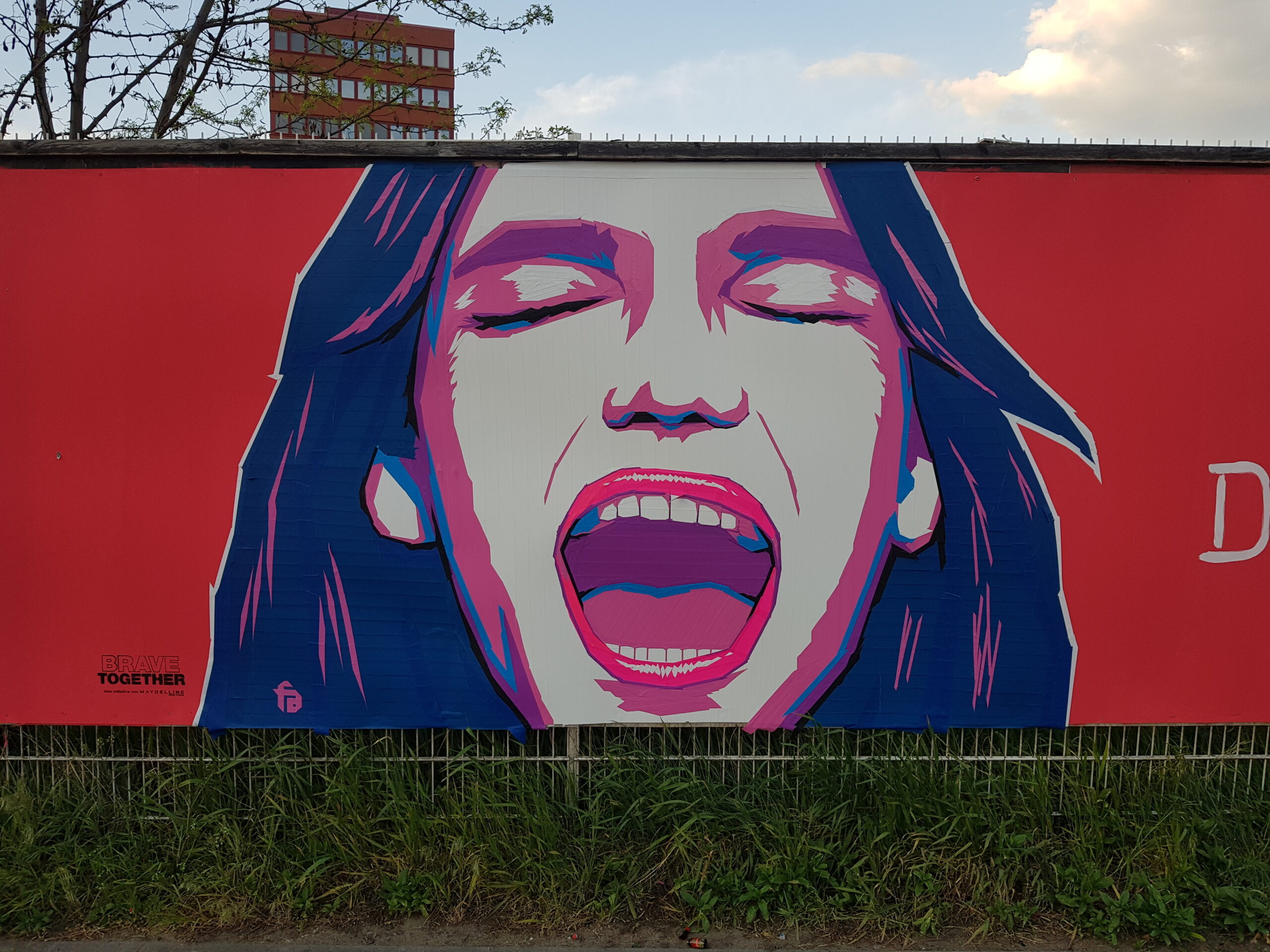When we move into ‘control mode’ then we cut ourselves off from reality. We cut ourselves off from reality every time. We cut ourselves off from what would guide our controlling, so to speak, and so the whole exercise becomes infinitely redundant. Our controlling has now become senseless controlling, pointless controlling, ‘controlling for the sake of controlling’.
What we’re talking about here are games; we never think about games in this way it is true, but that’s what games are – a game is an exercise in pointless controlling. Games are all about attaining a specified goal but what the goal actually is doesn’t matter in the least; what matters is that there is a goal (of whatever sort). We need a goal because that gives us a reason to control. Because this ‘controlling’ is the only significant ingredient in the mix there is – we might say – ‘controlling’ but no sense. The goal is already decided so all that’s left is to attain it, which is an entirely technical business. No awareness is necessary for this, no ‘questioning’ or ‘examination’ is required. Essentially, we’re just following rules and so instead of ‘awareness’ what is needed is obedience to the rules.
A game is a closed situation in other words, it’s a situation in which all the parameters, all the important details, have already been decided and so what we relating to is an unchanging ‘given’, a fixture. What we’re taking as reality thus becomes profoundly uninteresting to us, it becomes uninteresting in the sense that we already ‘know what it is’ and so we don’t have to keep looking at it. All we’re interested in are ‘developments’, not what is already there. The given reality is old news in the sense that it isn’t news at all – if we start wondering out loud what this thing called ‘reality’ might be all about people will scoff at us for being naïve. We will become subject to mockery because it’s not cool to question reality. What’s ‘cool’ is to be superlatively good at controlling, what’s cool is to be always able to attain our goals. The goals are what’s important, after all…
This is why we can say that ‘controlling causes us to lose sight of reality’ – we lose touch of reality because reality itself (reality in person, as it were) is always news! Reality itself is not a fixture, not an established fact, not a closed book, no matter what we might think or assume to the contrary. What we’re essentially saying here is that reality is not a construct, therefore. ‘Reality is that thing that doesn’t go away when we stop believing in it’, to paraphrase Philip K Dick. What we are also saying, in the same breath, is that controlling can only take place within the terms of a construct, within the terms of a closed world. Controlling can’t take place in an open situation because there cannot be any specified or defined goals in an open situation. There can only be provisional goals, phantasmagorical goals, goals that vanish into thin air when we reach them…
Thus – very clearly – controlling, by its nature, necessarily entails switching from an open to a closed view of the world and when we do switch views in this way we have inevitably turned our backs on reality. And not only have we ‘turned our backs on reality’, we have done so without noticing the transition. We don’t go around saying or thinking that ‘we are living in a closed world’ – as far as we are concerned nothing has changed and we are still living in a world that is perfectly open (which is to say, we imagine ourselves, in all good faith, to be living in a world that is actually real, a world that is – in another words – not a construct).
The situation in which we can (and absolutely need to) define everything that is going on is always a construct of thought, which is something we never think about – our attention is always being directed elsewhere. This is not to say that we can’t have the thought that ‘we living within the artificial context of a mental construct’, but that when or if we do that is ‘just another thought’ and because it’s just another thought it doesn’t actually tell us anything new. Thoughts can’t ever tell us something new, despite the fact that we always think that they can. Thoughts can only be meaningful (or rather they can only appear to be meaningful) within the remit of a ‘closed world’, within the remit of a framework which is assumed to be there, but which isn’t.
This is an interesting point because it shows how the thought that ‘this is something new’ (or the thought that ‘this is a totally different way of looking at things’) is itself not new, not itself different, even though it seems to be. It’s a token for something new but it’s an old token; tokens are always old because we’re using the same old set of tokens for everything – the arrangements we make with them can change but the units that we’re using to make the new arrangements can’t. The token stands for something new but it itself is old, in other words. The interesting thing about this is that were we to have the thought that ‘thoughts can only occur within an artificial context, a context that isn’t really there’ then it will probably seem to us that we now have some kind of advantage and are now not as trapped in the system of thought as we were before but this is not true. Thought is simply simulating ‘what lies beyond thought’ (or ‘what is not thought’) and we’re getting caught up in that simulation. Thought as simulating transcendence, but no transcendence is taking place. The literal, thought-created world does not contain transcendence as a possibility – anything else it can lawfully contain, but not this.
Going back to what we were saying before, a game – technically speaking – is a situation where everything is being supplied by the framework and the framework itself his completely unchanging. The framework is a constant, and what’s more it’s a constant or fixture that we are never allowed to know anything about. It’s an invisible constant. When we’re taking the simulation to be real and not a simulation, not a construct, then the mechanical basis of this simulation is hidden from view, hidden in a place we cannot access. If we were to become aware of ‘the unchanging mechanical basis’ for our world then we would immediately see the simulation to be a simulation. Not seeing the mechanical basis of the simulation is equivalent to James Carse’s self-veiling therefore – we have given away our freedom and we can’t see that we have, which is the necessary precondition for playing a game.
When everything is supplied by the framework and the framework itself isn’t actually real then this creates a particular type of situation – it creates a situation that is infinitely redundant. We never get anywhere even though we think we do, in other words. Apparently – within the terms of reference of the framework – winning is the best thing there is and losing is the worst. Apparently one outcome is infinitely desirable whilst the other is he infinitely undesirable, and this tension produces what we can call extrinsic motivation, which is the motivation of the game. Games are therefore ‘exercises in extrinsic motivation’. But seeing as how the framework everything is based on doesn’t exist, all of that is the purest nonsense! The game can only mean something when the two outcomes of winning and losing are ‘poles apart’, when they are ‘as different as different can be’, but since the FW is only a made-up thing this means that <winning> and <losing> aren’t different at all.
This gives us a good way of looking at why controlling (when controlling is all there is) is infinitely redundant. The whole point of controlling is that the outcome of our successful manipulation is different from the outcome of our unsuccessful manipulation – if they’re not at all different, not even a tiny little bit different, then what is our controlling all about? What’s the point of it? And the answer to these questions is of course that there is no point; as we have already said, what we are looking at here is ‘controlling for the sake of controlling’. The whole thing is a con. On the other hand, we could say that there actually is a point and that this point is to waste as much time as possible. Or to put this another way, we could say that the point is to totally preoccupy or distract ourselves from the truth for as long as possible.
Endlessly preoccupying ourselves in senseless games may seem in itself to be a rather senseless thing, but there could actually be method in our madness – the reason we arrange things so that we are continuously controlling, continuously struggling, with no end in sight, is because we don’t have to encounter anything real this way. Essentially, the world we perceive when we’re 100% immersed in controlling is not the real world. It can’t be the RW for the reasons we have just given – it can’t be the RW because we are now subsumed within the artificial context of the System of Thought and when we are subsumed within artificial context of the SOT everything we perceive or believe is necessarily unreal. On the one hand we could say that everything we see is necessarily seen in relation to our goals and our goals aren’t really there – they have no independent existence of their own, obviously enough – and on the other hand we could equivalently say that we are subscribing to an illusion because the one who has the goal, the one who takes the goal so seriously, doesn’t exist either. Both the goal and the one who is chasing the goal are artifacts of the SOT and as such neither have any existence outside of it. Both are only thoughts…
The SOT is ‘the distortion that we can’t see as such’ – instead of seeing it as such, we take it to be we take it as the basis for everything we do and this is why the conditioned world is said to be an illusion (or maya). The conditioned world is ‘the externalisation of the distortion that we cannot see as such’ so how can it be anything else other than an illusion? The name of this distortion is ‘the self’ (or ‘me’) and so even though it’s only a distortion we absolutely don’t want to see this. When we don’t see the distortion as a distortion then we have to live in an illusion world. We are attached to the idea we call ‘the self’ and because we are attached to it we would rather believe in any nonsense no matter how much suffering or confusion this may entail. We would prefer to believe in any old rubbish rather than seeing what’s really going on. Reality would spoil our buzz.
so
Controlling for the sake of controlling (or chasing unreal goals for the sake of chasing, for the sake of being thoroughly engrossed or immersed in the chasing) may not necessarily sound too bad to us. Pointless, maybe, but at the same time it may not necessarily bad (if that’s really what we want to do, that is). If we want to distract ourselves the whole time then why shouldn’t we? Where’s the harm? There is an unexpected twist to this story however and the twist has to do with what we might call ‘the flipside of distraction’. The flipside of distraction (or the flip-side of controlling) is anxiety and so when we opt for a life that is made up of never-ending futile controlling, unbeknownst to us we are also opting for life made out of non-stop pointless worrying! Having to constantly struggle or control isn’t necessarily as bad as it sounds (in one way it isn’t, at least); it isn’t as bad as it might sound because half the time we can hope for a positive outcome, and this feels good. This gives us a lift. ‘Hoping for the positive outcome’ is a type of motivation (and a type of excitement) that we consider to be perfectly healthy and desirable. Non-stop futile controlling can be mined for euphoria, so to speak, because we don’t have to let ourselves know that it is futile – this is after all what we like to call ‘positive thinking’!
This sounds like a completely unreasonable approach to take on the matter since we all imagine that there is such a thing as non-futile or efficacious controlling – the perception of ourselves as being ‘efficacious controllers’ is what lies behind healthy (which is to say, ‘non-self-doubting’) ego activity after all, but our argument is a lot subtler than this. On the stated level, which is ‘the level of nominal meanings’, we can indeed be successful in our controlling (to stay alive for any length of time requires that we are able to pragmatically control things) but the secret or unstated reason for the euphoria we derive from our efficacious controlling has nothing to do with any pragmatic considerations. If that’s all that were involved there would be no euphoria since euphoria means simply that the self-concept is experiencing validation. Whilst it is entirely and unquestionably legitimate (if not absolutely necessary) for us to maintain a certain degree of control in our lives, this doesn’t mean that it is legitimate for the ego-construct to derive a sense of validation from it! That isn’t legitimate since the ego-construct is only a thought.
What the ego-construct is trying to do with the non-stop controlling is to create a certain type of plausible illusion – the plausible illusion that the ever-scheming ego-construct exists when it doesn’t. Proving that it exists when it doesn’t is the only thing the self-concept wants to do; this is the root-motivation for everything it does. Without this motivation, and the activity that comes from it, it is nothing. Half the time – as we have said – it is able to extract euphoria from the situation (because of the spurious link it has made between ‘successful controlling’ and ‘the definite existence of the controller’) but the other half of the time – as we have also said – it has to experience the negative euphoria of having its existence correspondingly de-validated, which is what failed controlling does.
The ego-construct mines everyday life for its own benefit – it exploits everyday life for any apparent advantages it may find there. This might sound fair enough (we’re all very used to this type of thing, after all) but it isn’t. At the same time that the ego-construct mines everyday life for advantages, it is also mining for its own disadvantages. In extracting pleasure it also extracts pain. Moreover, the only reason the self-concept is motivated to involve itself this in this mining operation in the first place is because it is afflicted with a special type of blindness – a type of blindness that means that it can’t see that when it mines advantage it also mines disadvantage at the same time. If it didn’t suffer from this special type of blindness then obviously it wouldn’t be able to continue with its game, it wouldn’t be able to carry on with the mining operation. This isn’t to say that ‘opposite blindness’ is a good thing however – it’s a good thing in a very limited way (it’s a good thing in that it allows the game to continue) but the game itself is not a good thing. Far from being a ‘good thing’, the game itself is a null situation that we can’t ever escape from…






